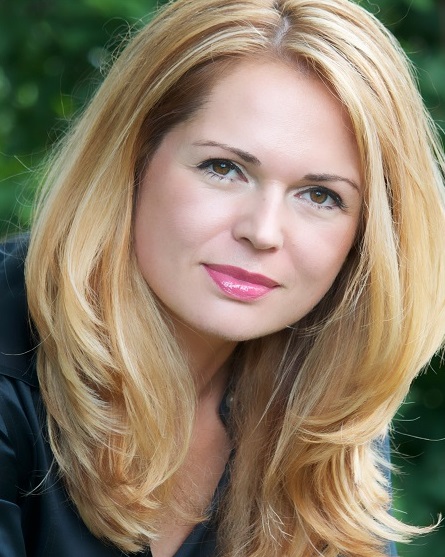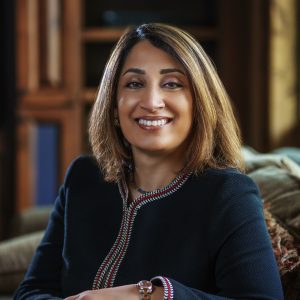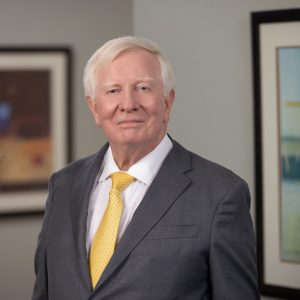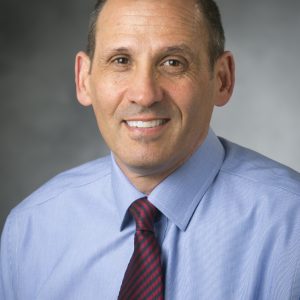CEO Leadership Series: Stella Vnook, CEO, Diverse Biotech Inc.

PERSONAL INVESTMENT HELPS DRIVE NEW CANCER THERAPY DEVELOPMENT
When Stella Vnook became CEO of Diverse Biotech Inc. in mid-2019, she welcomed the challenge of guiding the biopharmaceutical start-up’s ambitious cancer research. As someone who has lost close family members to cancer, Ms. Vnook is deeply invested in her new leadership role at the forefront of cancer treatment innovation. “It means everything to me,” she says.
Diverse Biotech focuses on developing novel therapies that fuse cannabidiol, also known as CBD, with cancer-fighting drugs to create new chemical entities that are designed to increase efficacy while decreasing toxicity for patients. The company, which recently relocated from Orlando, Fla., to Doylestown, Pa., to be closer to the Philadelphia region’s pharma research hub, is targeting difficult-to-treat cancers including glioblastoma and pancreatic cancer.
In an interview with Ashton Tweed, Ms. Vnook discusses the company’s novel conjugate drug delivery platform and the regulatory hurdles ahead, as well as family experiences that prompted her search for alternative treatments:
You’ve worked for big companies including Merck, Catalent Pharma and Jazz Pharmaceuticals. What drew you to Diverse Biotech?
My career evolved to the point where I wanted to look for opportunities to run a company. The question was, what type of company do I want to run and what is it that I want to accomplish?
I realized that the best way I can contribute is to be part of a company from the preclinical stage—where the decisions are made, which molecules will come to fruition, which treatments will see the light of day. Sometimes, it’s the rare orphan diseases that are the most difficult to treat that do not get the right attention in the early stages from larger companies. So, that’s what drew me to a smaller start-up company.
How did you become interested in developing cannabidiol therapies?
My mother was diagnosed with Stage IV ovarian cancer and then, eight years later, my mother-in-law was diagnosed with Stage IV pancreatic cancer. Both women were fighters. They passed a year apart from one another—my mom in April 2017 and my mother-in-law in April 2018.
After their diagnoses, I started to look for other treatment options for them. Chemotherapy was doing what it was supposed to be doing, but the toxicity my mother and mother-in-law experienced was horrific. My mother-in-law went through two years of chemo, but it was a tough battle. While chemo may kill the cancer, it can also kill the rest of the body.
I started to look for alternative therapies to help her have a better quality of life and I came across a lot of research about cannabidiol. My mother-in-law responded well to cannabidiol; a lot of the nausea and anxiety went away. It really helped her—I’m not sure whether that’s because she regained her appetite or her strength. One way or another, it improved her quality of life. So, except for maybe the last month of her life, she really lived through cancer.
So, I became very interested in taking cannabidiol to a clinically studied, validated drug therapy.
Do you find yourself having to dispel preconceptions or biases that people might have toward the cannabis industry?
Oh my god, absolutely. A lot of times, honestly, we’re denied funding from investors who say “We don’t support THC companies” when we don’t have any tetrahydrocannabinol (THC) in our compounds. Or, they say, “We don’t participate in the cannabis business.” Again, we don’t grow cannabis and our conjugates are based on a synthetic conjugation of CBD and an alkylating agent, which will become a new chemical entity. Sometimes, I don’t even get to tell that story; people just jump to a conclusion.
How do you respond?
I always reply with facts. Luckily, there’s a lot of research about cannabinoids. First of all, many people assume that cannabis is all THC, which is not the case. THC is a component of the cannabis plant that gets people “high.” However, the cannabis plant contains other molecules known as cannabinoids or CBD, which hold tremendous potential as an anticancer agent. I also provide studies that show CBD inhibits the proliferation of glioma cells. Other research shows that CBD is non-toxic and promotes anti-tumor activities in multiple types of cancers.
How does Diverse Biotech’s conjugate approach to cancer drug delivery differ from the more traditional cocktail approach?
The cocktail approach is based on combining two medicines in order to improve successful outcomes. Essentially, the two medicines have a synergistic effect. But, in many cases, simply mixing two drugs together may or may not yield the desired outcome. For example, if you just combine two drugs together to treat cancer, the drugs may not end up in the same place at the same time in order to be effective.
That’s why our scientists created the conjugate approach to deliver the drugs together and ensure that they travel together to that exact site where they’re needed. So, instead of hoping that multiple medicines reach their intended target, we believe that our conjugates will synergize with one another to more effectively kill cancer cells.
The cannabinoid component of the conjugate delivery may help lessen some of the harmful effects that can result from chemotherapy. Our hypothesis is that with the conjugate delivery, we can use less of the toxic agent to get the same or better therapeutic effect and potentially lower the toxicity of this new chemical compound that we’re deriving. So, it really translates into a safer drug— a drug that could be taken for 12 cycles with tolerability, instead of stopping the treatment half way due to a patient’s inability to tolerate side effects from chemo or organ toxicity.
What do you consider your biggest challenges as the CEO of Diverse Biotech?
I think it’s about working faster, knowing that our technology has such tremendous potential to help those that do not have options now, and constantly facing the issue of funding.
I’m not the only one in my company with a story. Every single person in our organization has a personal commitment because they lost a loved one to cancer and they don’t want somebody else go through that pain. So, the challenge is to work faster, knowing that our technology has such a tremendous potential to help those that do not have options now. We have a huge responsibility to offer a solution.
I get calls from parents whose children have glioma—a type of brain tumor—asking me when we’ll have a Phase I trial because they saw on our website that we’re working in that space. The only answer I have is “Not soon enough.”
Where are you currently in the development process?
We’re working through the FDA approval process and we’ll be seeking Investigational New Drug (IND) approval to allow us to start Phase I clinical trials. Funding is my biggest concern because I’m dependent on angel investors and others to fund every milestone, from in vitro and in vivo studies to the IND filing. I have to make sure I have adequate funding to get me to the next step.
At the same time, if we move faster with the glioblastoma therapy, then does that mean we have to take a slower approach with developing a therapy for pancreatic cancer? Our goal, of course, is to have adequate funding to develop treatments for multiple cancers at once.
What advice would you give other CEOs of preclinical companies?
Building the right team with the right experience is critical. Keeping everyone informed about what each other is doing is also critical. Every Monday, we have a leadership team meeting to make sure everyone is aligned. You would think that at a small company everybody knows what everybody’s doing, but a small company like ours cannot afford to make any mistakes.
So, every Monday we all realign with each other and we decide on the top five things we’re going to accomplish that week. Then, we report back every week on whether those goals are completed or delayed. We also decide either to move in a different direction or think of ways to overcome the barriers. That builds a very strong team and makes us that much more aligned with our goals.
Does the fact that you’re the only woman on your executive team affect how you do your job?
To be honest, it’s inspiring to be a woman in the executive seat. I know that women are just 5 percent or so of all Fortune 500 CEOs. But my recruitment philosophy will not change—I’m always hiring the best and the brightest people for the job. A McKinsey study from 2018 found that companies with culturally and ethnically diverse executive teams are 33 percent more likely to have better-than-average profits, and that always stuck with me. So, that’s the vision I have for the company.
Ashton Tweed would like to thank Stella Vnook for this interview. If your company needs help from members of the Ashton Tweed Life Sciences Executive Talent Bank, we can supply that assistance either on an interim or a permanent basis. Additionally, if you are among the many life sciences professionals affected by the changes in the industry, Ashton Tweed can help you find the right placement opportunity — from product discovery through commercialization at leading life sciences companies — including interim executive positions and full-time placements. In either case, please email Ashton Tweed or call us at 610-725-0290. Ashton Tweed is pleased to continue to present insightful articles of interest to the industry.
 Stella Vnook
Stella Vnook
Stella Vnook is the CEO of Diverse Biotech Inc., who has more than 25 years of experience in a variety of leadership positions in the pharmaceutical industry. Ms. Vnook previously served as Vice President, Managed Markets and Trade at Assertio Therapeutics Inc.; Head of Patient and Access Services at Jazz Pharmaceuticals; Head of Managed Markets at Purdue Pharma L.P.; Head of Global Marketing & Strategy, Softgel Technology, at Catalent Pharma Solutions; and Development Leader/ Director at Merck.
In addition, Ms. Vnook is vice chair of the board of Chrolich Biotech and member of the advisory board for ViaClean Technologies. She earned an MBA from La Salle University, as well as a BA degree in Biology/Anthropology/Mathematics and a BPharm degree from Temple University. She and her husband live near Philadelphia with their daughter, 11, and son, 6.





